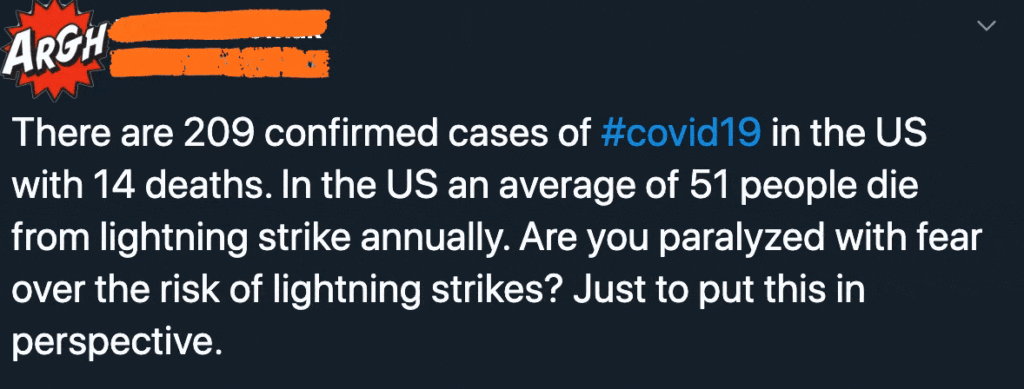5 Burning Questions (and Answers) About Coronavirus
By Jordan Eller

At the time of this posting, the WHO declared the outbreak of coronavirus, or COVID-19, a global pandemic.
As the experts in the field of life science marketing, we’ve been paying close attention to the conversations about how to prevent and cope with the coronavirus. As with most things in this modern era of discourse, a fair amount of misinformation has been circulating on social media.
Coronavirus is too serious to be uneducated about, so we wanted to help set the record straight on a few crucial questions of coronavirus.
Is coronavirus “just like the flu”?
No, it’s not. This is a dangerous, reductive simplification that has no scientific support whatsoever. It is more closely-related to the SARS virus, with the full name of coronavirus being “Severe Acute Respiratory Syndrome coronavirus 2″. The mortality rate of the seasonal flu is around 0.1%, whereas coronavirus has a rate roughly 20 times higher than that, closer to 3.5%. Those percentages may not look very scary, but it’s important to consider the ramifications of such an exponential increase, such as the overwhelming amount of patients that will fill the hospitals, placing a crushing burden on health systems across the world.
How soon will coronavirus vaccines be available?
A vaccine is still at least one year away, and it’s important that we stem the tide of infection while it’s being formulated. Dr. Anthony Fauci, Director of the National Institute of Allergy and Infectious Diseases, has asserted that a vaccine is still 12-18 months away. On March 2nd, 2020, there was an official White House roundtable event discussing coronavirus where some individuals in the US government claimed that a vaccine could be ready “in a couple of months”. This is untrue. This long development time is precisely the reason why it’s so crucial to mitigate the amount of cases of coronavirus. Also, we’d like to remind everyone that as a general rule of thumb, it’s better to get scientific advice from scientists, not politicians.
Will a facemask prevent me from being infected?
No, coronavirus can infect you whether you’re wearing a mask or not. The CDC states that “you do not need to wear a facemask unless you are sick, or are caring for someone else who is sick.” It’s tempting to rush out and n95 mask buy in the spirit of prevention, but the truth is that facemasks should be saved for the most vulnerable among us.
I’m young and/or have a strong immune system. Should I worry?
It’s true that coronavirus is particularly threatening for the elderly and other people with compromised immune systems, but the danger in thinking “I’m safe because I’m young and healthy” is that you can still be a vector for the virus and you can still pose a threat to others. Even if you’re showing no symptoms whatsoever, all it takes is a single errant cough near a vulnerable person to potentially devastate their life. Regardless of your age or health, please be conscientious of those around you.
Is the panic justified?

Friendly reminder that lightning strikes are not contagious! Be on the lookout for fallacious, bad-faith arguments such as this.
Due to the uptick in scientific skepticism on social media over the last few years, we’ve seen quite a few instances of users claiming that people are overreacting to the outbreak. It’s hard to accurately answer this question; there’s no concrete metric for measuring panic. Regardless, the fact remains that coronavirus is a dangerous infectious illness that has far-reaching consequences to both individuals and medical institutions. The best way to deal with coronavirus is to prevent it from spreading in the first place, which is why many organizations are cancelling events that would lead to more exposure. It’s a shame this needs to be said, but common-sense precautionary measures supported by science should never be conflated with “hysteria”.
At Forma, we always strive to spread as much knowledge and awareness about the life sciences as possible. Our hearts go out to all victims of the coronavirus, and we will continue to provide education as the situation develops. As always, please don’t hesitate to reach out via the contact button below. And don’t forget to wash your hands for at least 20 seconds!

